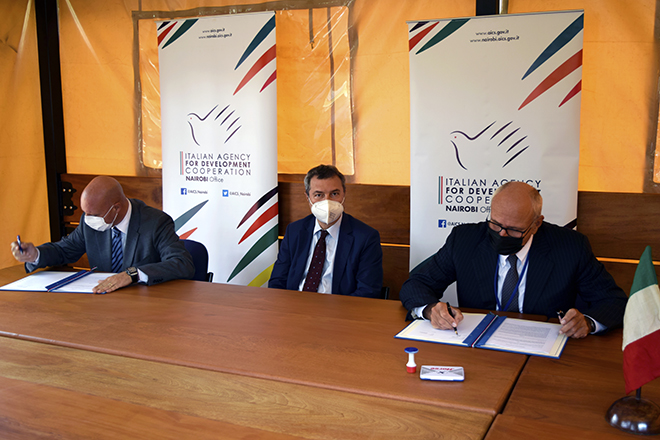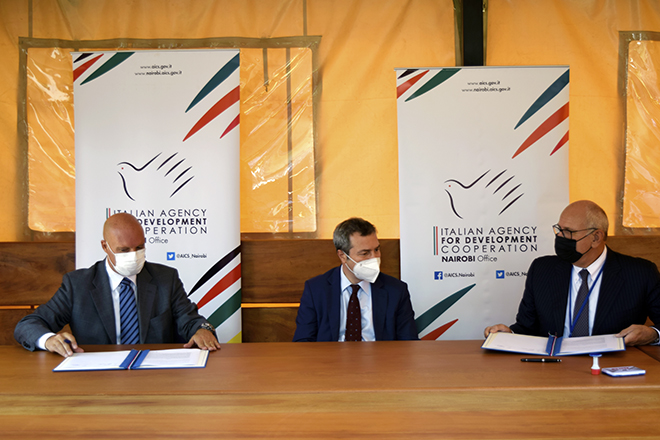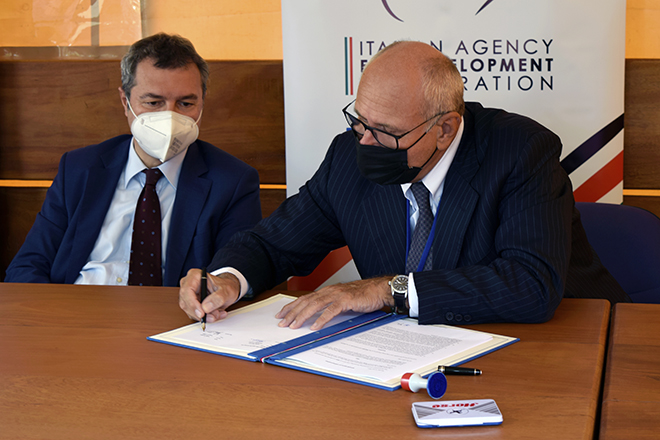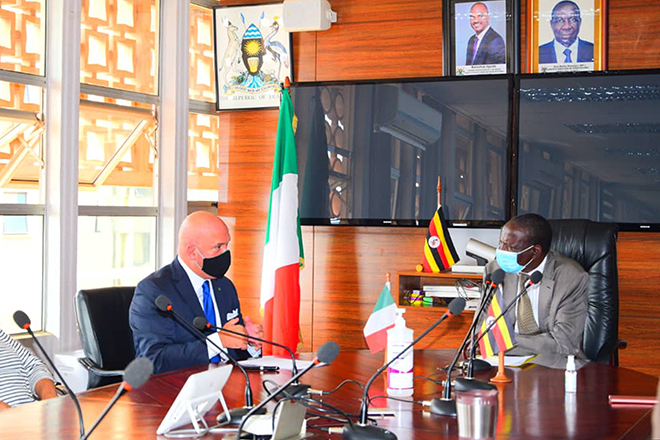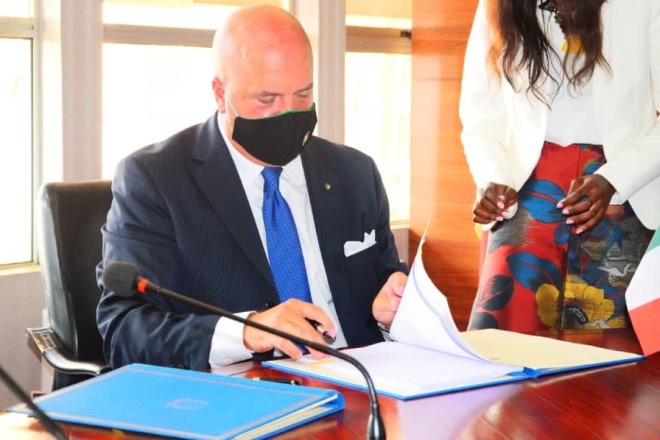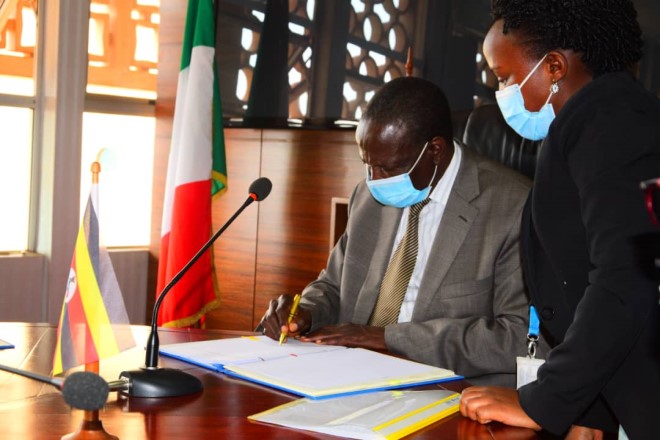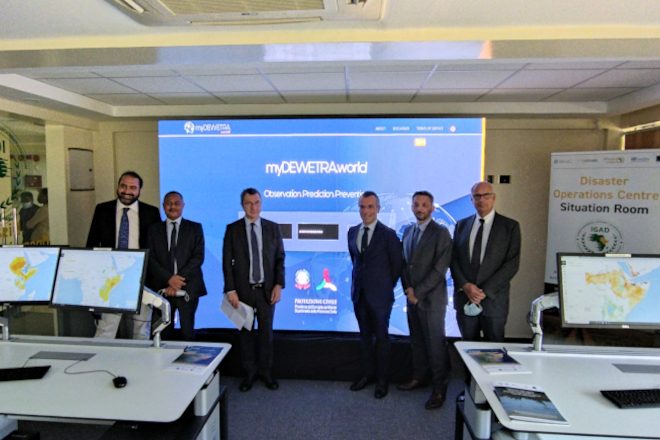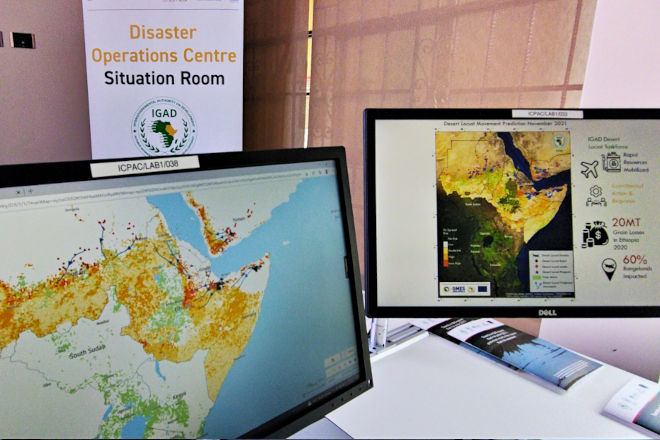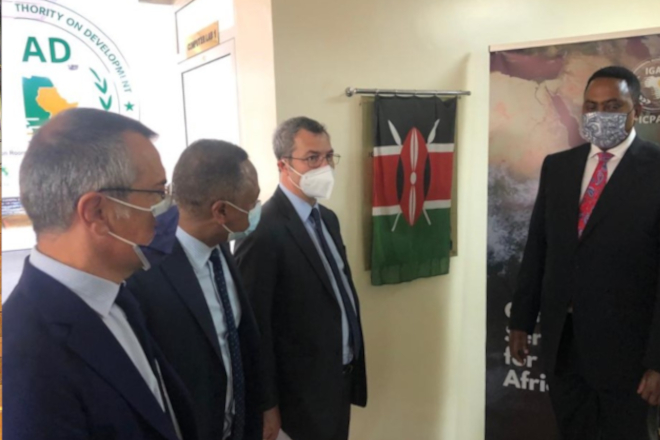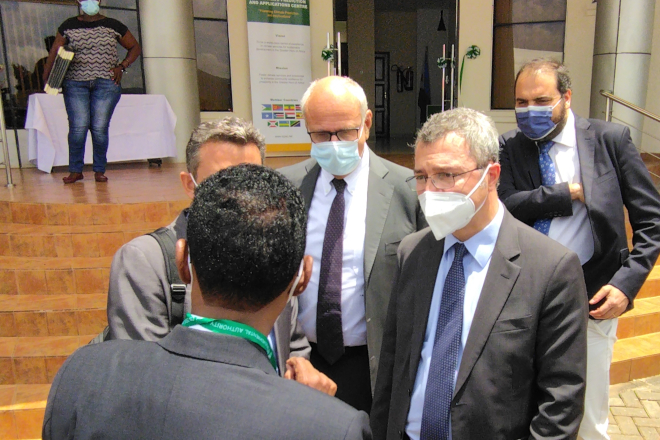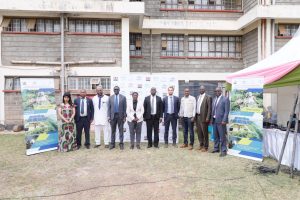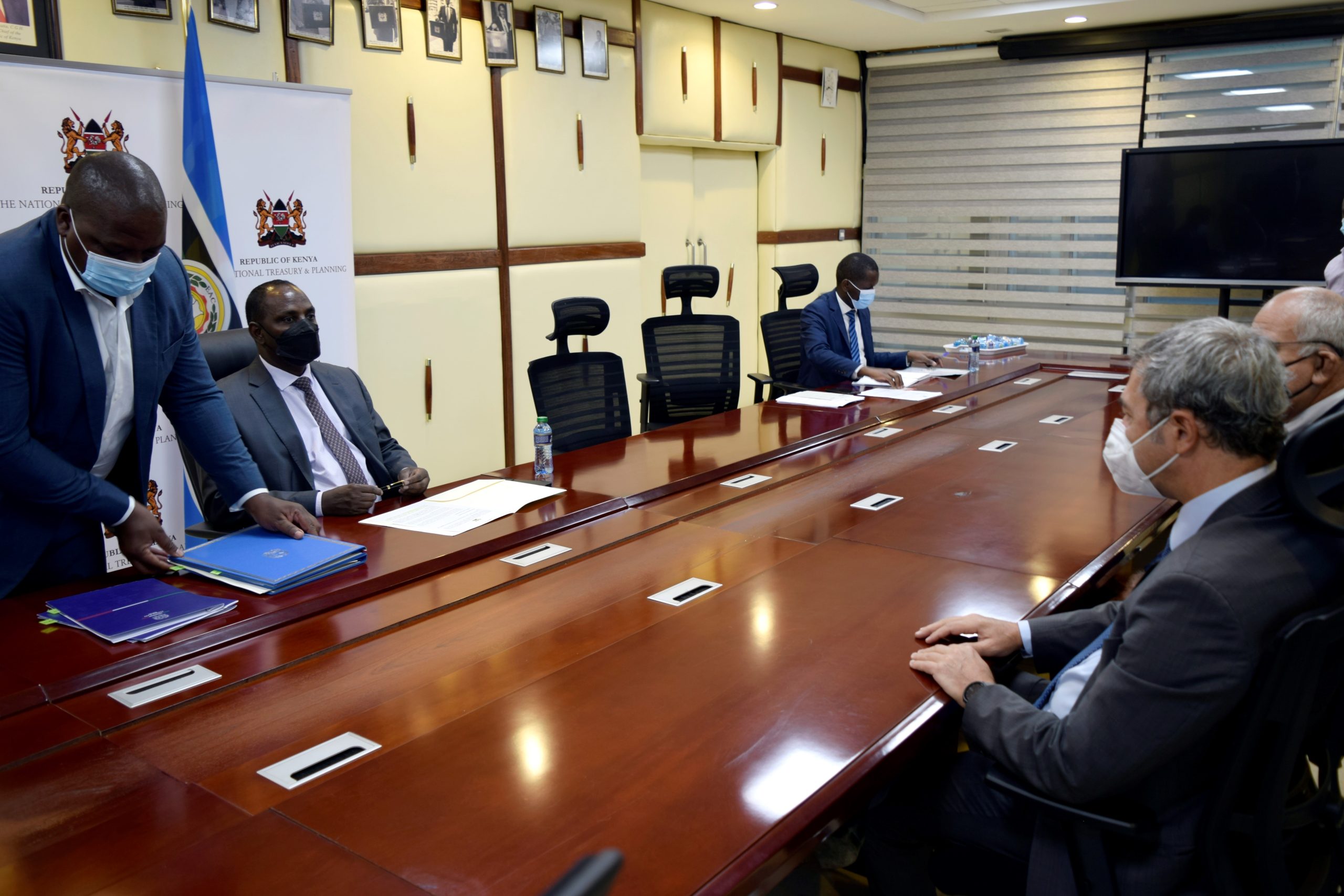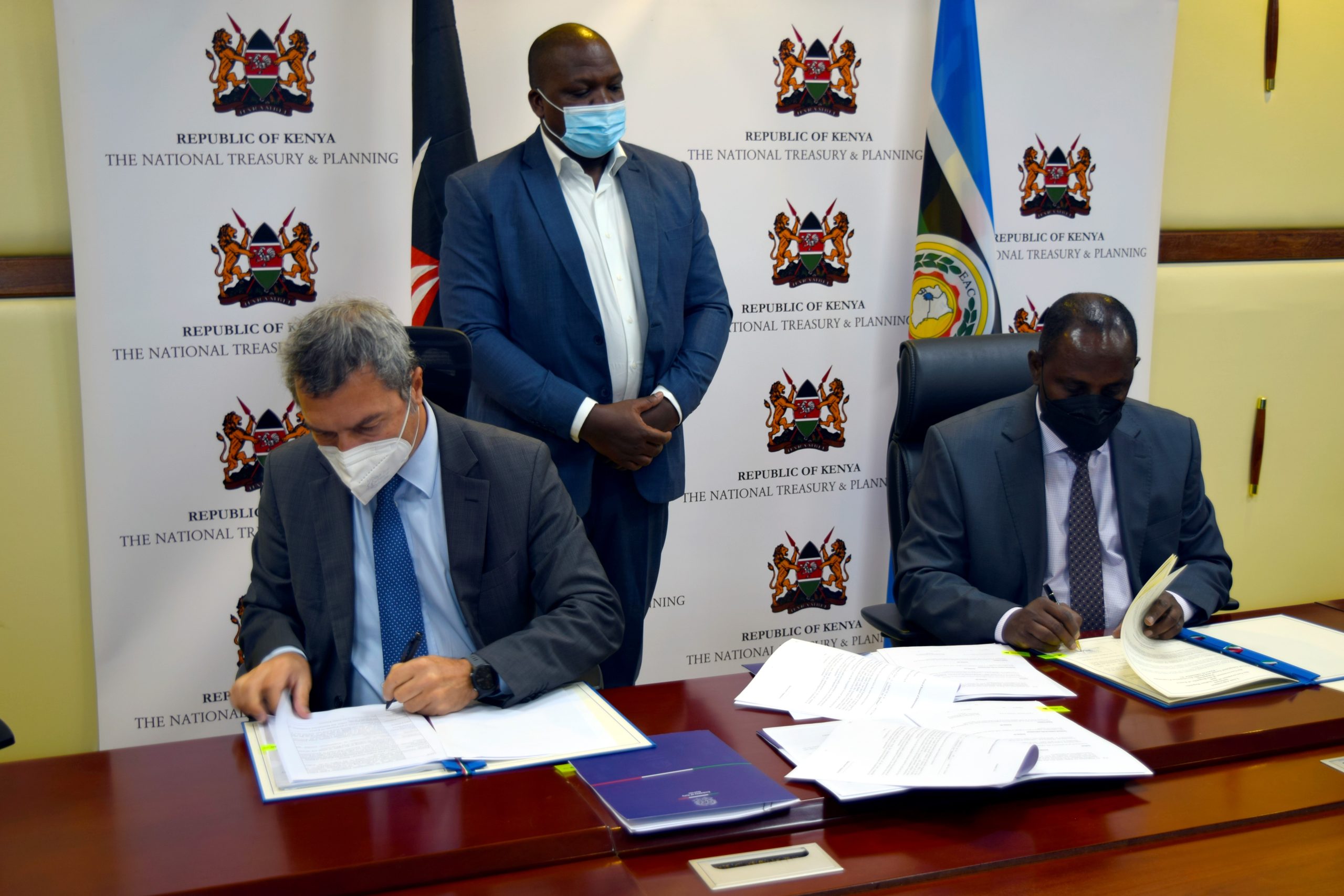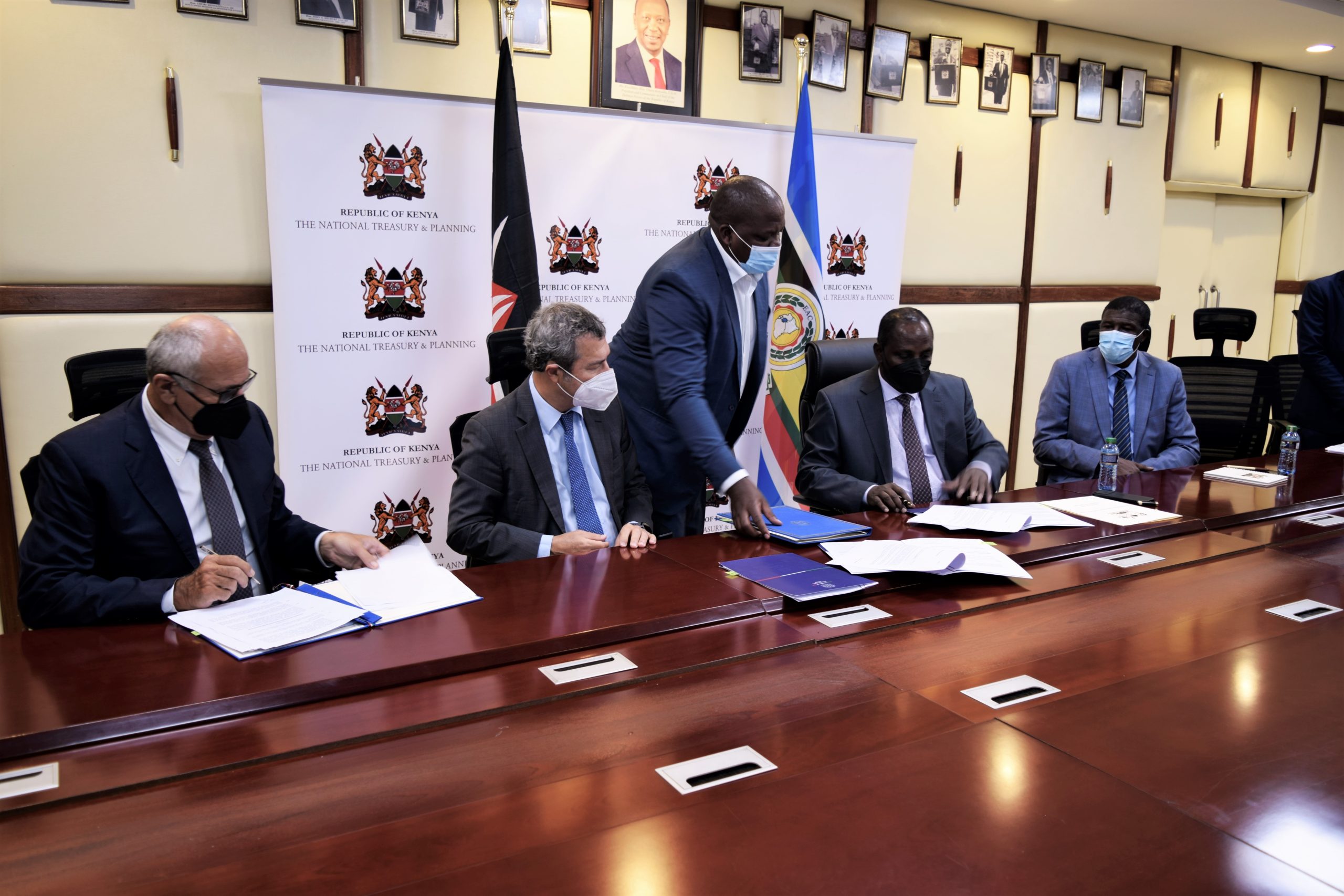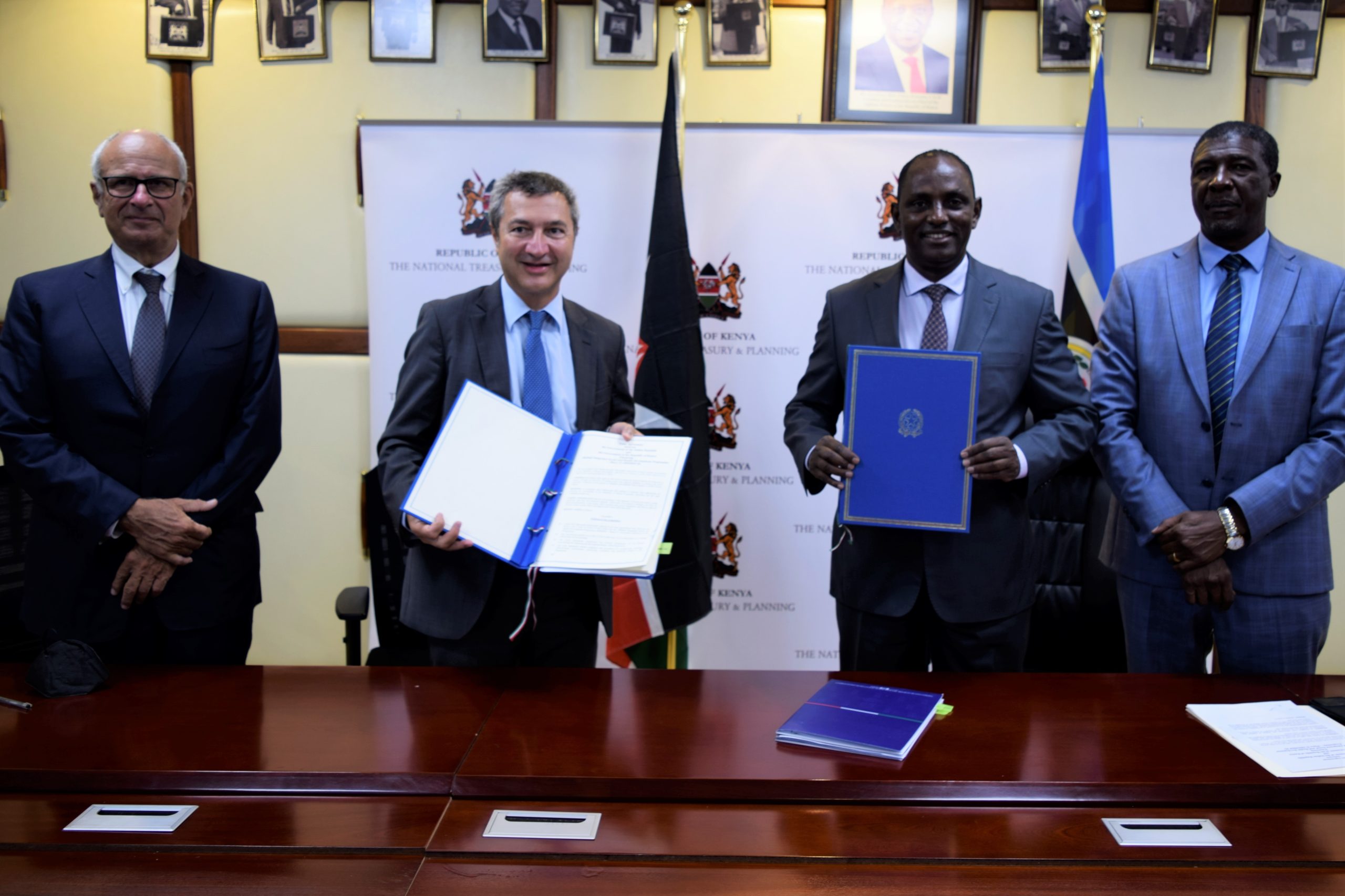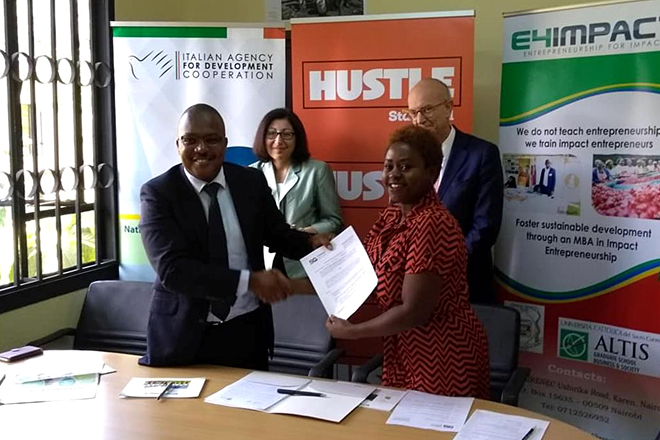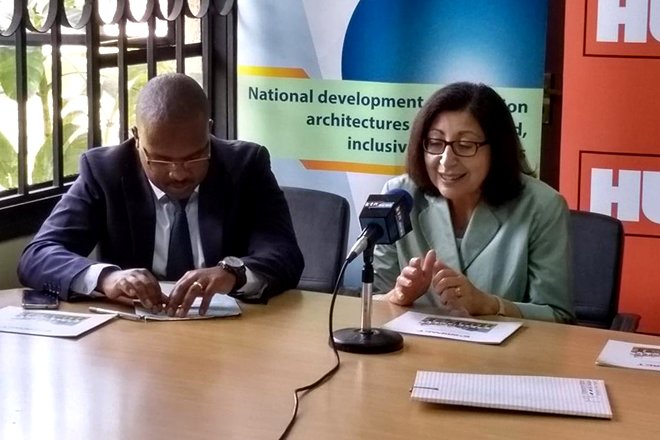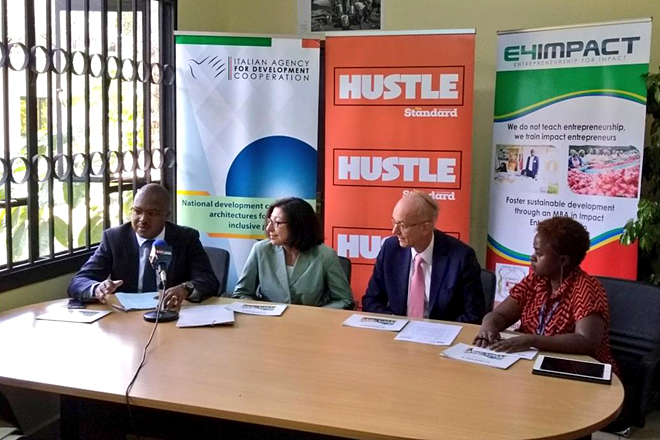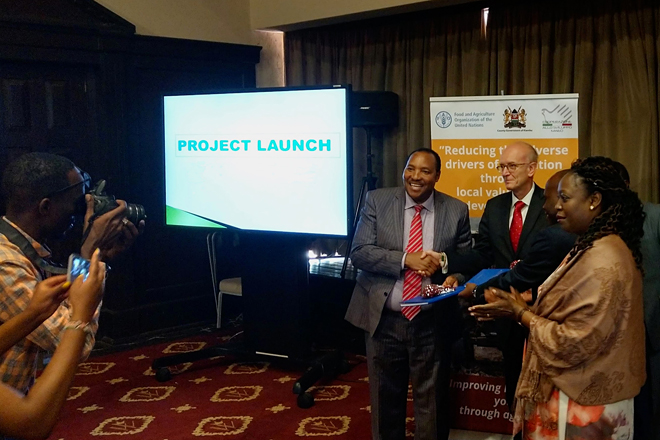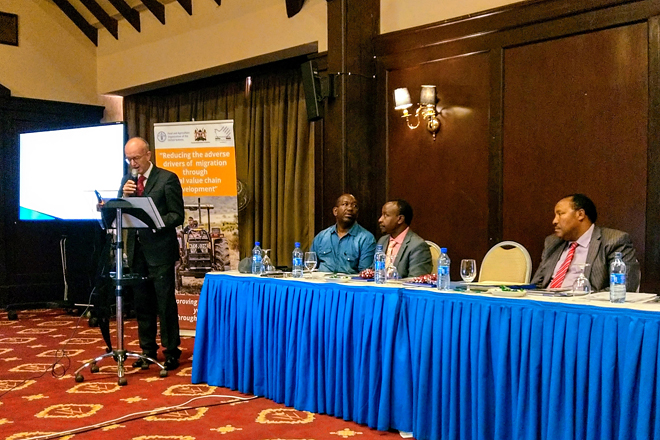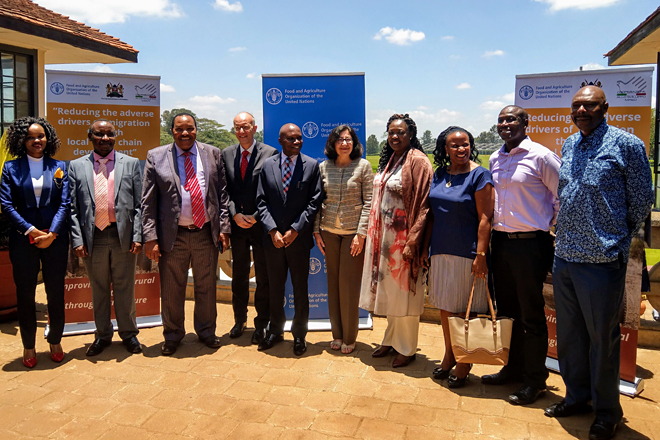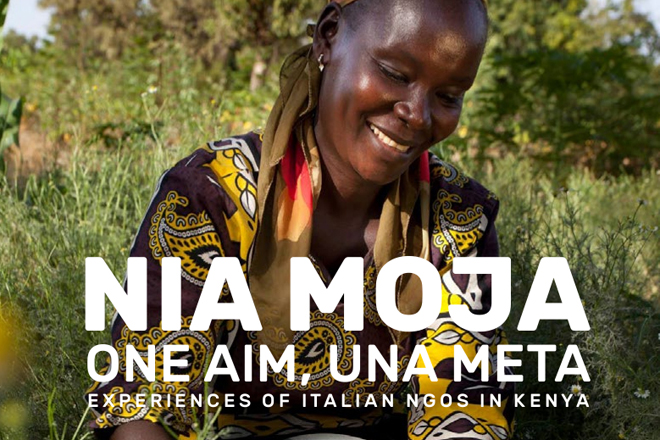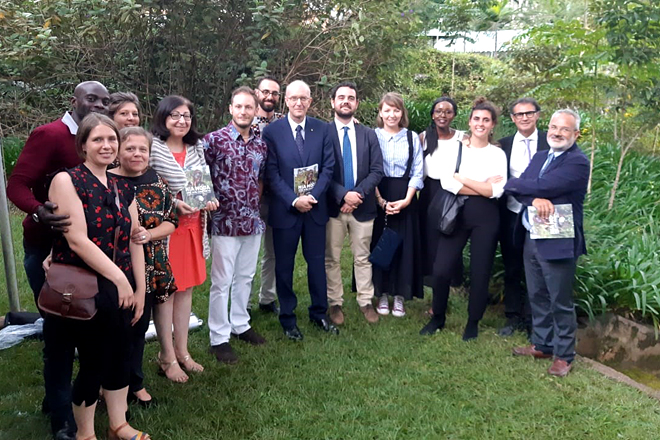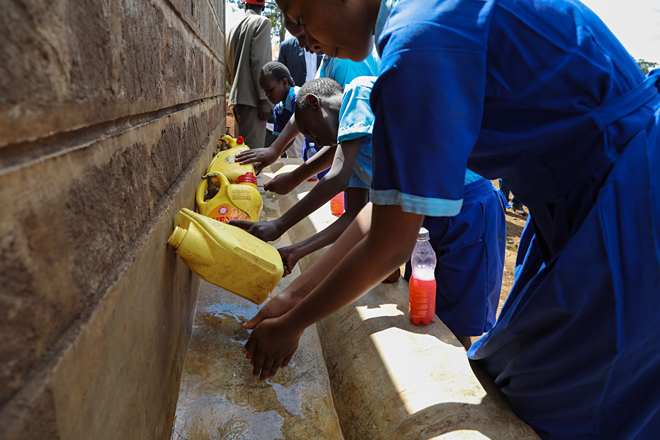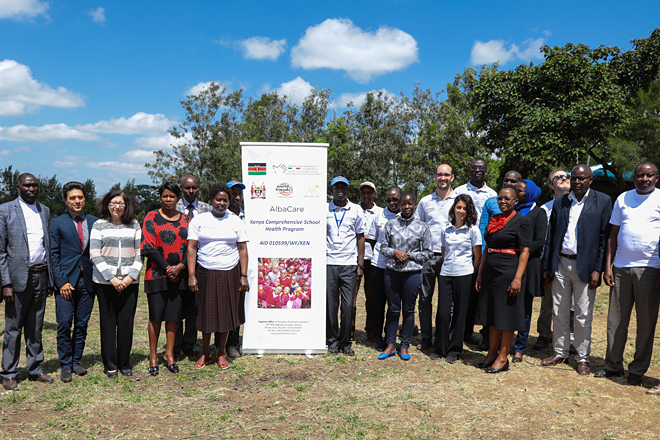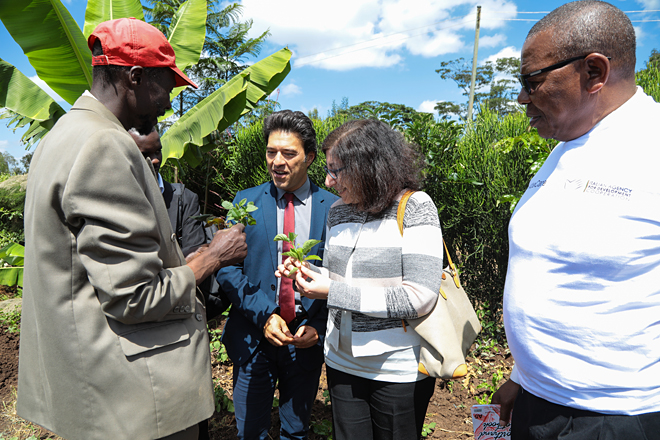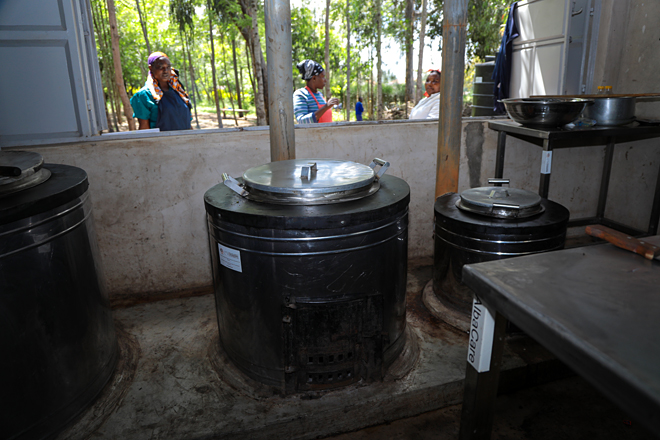Nairobi (Kenya), 22nd July 2021 – Eni, through its subsidiary Eni Kenya, and the Nairobi Office of the Italian Agency for Development Cooperation (AICS) signed today, at the presence of the Ambassador of Italy to Kenya Alberto Pieri, a Memorandum of Understanding to identify possible collaboration opportunities in the areas of agriculture and value-chain development, environment, health, vocational training and education, and access to energy/green energy and innovation. The document was signed by the Eni Kenya Managing Director Enrico Tavolini and the AICS Nairobi Head of Office Fabio Melloni.
The four-year agreement promotes and strengthens the Italian system abroad and fits in Eni’s and AICS’ strategy to leverage public-private partnerships, which the United Nations indicate as a key tool for achieving the Sustainable Development Goals of the 2030 Agenda. Also, this agreement is in line with the Italian law on cooperation 125/2014 which recognizes the contribution of the private sector in defining and implementing sustainable development projects.
The agreement will allow Eni Kenya and Aics in Kenya to identify and develop future collaboration projects, in accordance with the Government of Kenya’s strategic objectives for social development and in line with their respective actions in the Country.
Eni has been present in Kenya since 2013 with offshore Oil & Gas exploration activities in the Lamu Basin, and with industrial models of fully-integrated circular economy along the bio-fuel production value chain. Also, Eni Kenya contributes to the local development initiatives of the National Oil Corporation of Kenya (NOCK) in the key sectors of education, health, and water & sanitation.
The AICS Nairobi Office has a long-standing experience in the Country and a large network with other Cooperation Agencies, Civil Society Organizations as well as Organizations of the United Nations System. Moreover, Kenya is a strategic Country for the Italy and its Cooperation Agency since the late 90’s, where it has consolidated its traditional areas of intervention such as agriculture and irrigation, WASH, territorial and human development, especially health, education and private sector.
